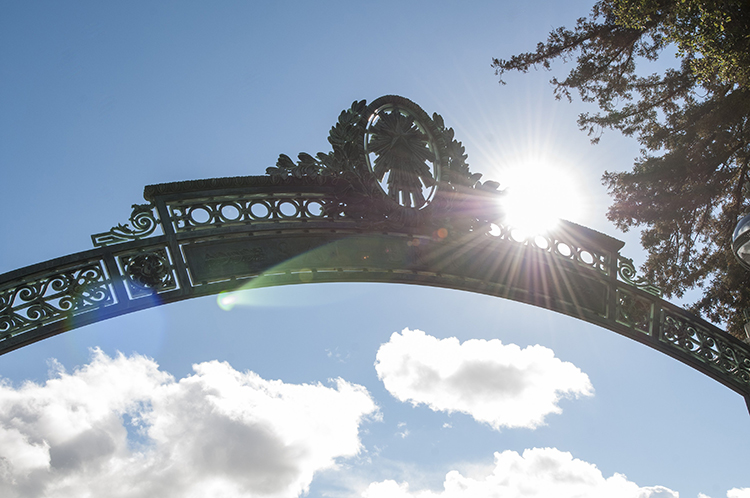Celebrating Black History Month
"Even as we acknowledge the difficult times, we affirm the bright moments on Berkeley’s campus worthy of celebration and reflection," campus leaders write

February 1, 2022
Dania Matos, vice chancellor for equity & inclusion and Stephen Sutton, vice chancellor for student affairs, sent the following message to the campus community on Tuesday:
Each February we celebrate Black History Month by highlighting achievements, tribulations and everyday experiences across UC Berkeley’s increasingly diverse Black community.
It was a year full of stress and trauma generated by the pandemic, racial violence, threats to voting rights and, just today, threats to more than a dozen Historically Black Colleges and Universities. Universities should be places of reflection, growth and agency, not fear and lockdowns.
Even as we acknowledge the difficult times, we affirm the bright moments on Berkeley’s campus worthy of celebration and reflection.
There are many people working to make UC Berkeley more inclusive for Black faculty, staff and students. Following are some highlights of that work, even as we acknowledge that the work to make UC Berkeley a place where Black students, staff and faculty feel welcome is far from over.
The African American Initiative, established in 2015 to address the underrepresentation of African American students, faculty and staff is continuing to move the needle on its objectives. The fourth cohort of African American Initiative Scholars joined the campus in fall of 2021. This spring, we will celebrate the graduation of our first African American Initiative Scholar cohort.
In partnership with the African American Initiative, the African American Theme Program (AATP) — also known as the Afro Floor — will expand from 50 students to over 80 students in the program. AATP provides a community of belonging for students to explore Black experiences at Berkeley.
When it comes to undergraduate admissions, Berkeley continues to compete to recruit high-achieving Black students. Representation of African Americans among all undergraduates is the highest it has been in over 15 years and in 2021, Berkeley admitted 15% more Black first-year students than the previous year, part of its most diverse first-year class in 30 years.
The Graduate Division has also seen a record increase in applications from students from historically underrepresented backgrounds. Black representation among graduate students is the highest it has been since 1974.
Work to recruit Black faculty to campus has also made progress. Black representation is now at the highest representation as a percentage since at least 1979.
Prominent Black faculty members have joined us at Berkeley include David C. Wilson, who was named dean of the Richard and Rhoda Goldman School of Public Policy; Maya Carrasquillo, who came to UC Berkeley as a member of the new interdisciplinary Climate Equity and Environmental Justice faculty cluster; and Lisa Amstrong, who joined the faculty at Berkeley Journalism.
Faculty and students have also engaged in groundbreaking research that centers racial injustice. Examples of this research work include a report by the Othering & Belonging Institute on the roots of structural racism in America and a School of Public Health study on the connection between residential segregation and poor heart health in Black Americans.
Of course, not everything about the Black experience at Berkeley is shown in statistics or research reports. Members of Berkeley’s Black community have created new spaces — digital and physical — to connect.
The Black Public Arts Project completed its first phase which included removing bike racks at the Black Wednesday Wall. The second phase of the project will feature community banners and ancestral poles conceived by Cal Black Alumni artists Rosalind McGary and Renata Gray. The project will be completed this spring.
The African American Student Development and The Institute for the Study of Societal Issues also launched the Black Lives at Cal Project, a virtual public history project that will collect information about the legacy of Berkeley’s Black community.
Black students at Berkeley have also created an app called Blackbook University that strengthens peer-to-peer connections, academic opportunities and professional development.
And members of Berkeley’s Black LGBTQ+ community have organized the annual UC-wide Blaq-OUT conference for later this year. The conference will bring together people from within the African Diaspora and LGBTQ+ communities.
Throughout the month you can find resources, events and stories about Black history on the Division of Equity & Inclusion’s Black History Month page.
We wish you all moments of connection, celebration, agency, joy and persistence this month.